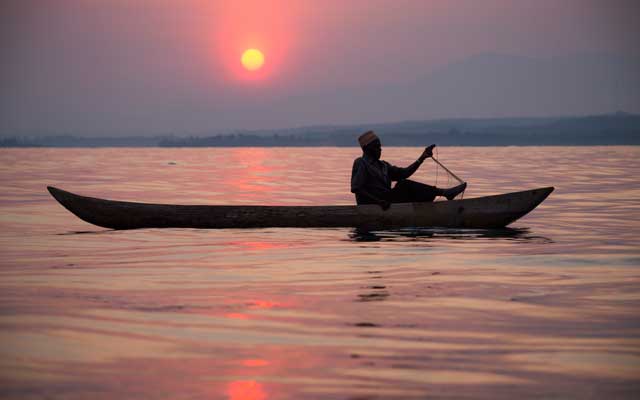 Tuungane Dugout, Lake Tanganykia. Photo courtesy of The Nature Conservancy
Tuungane Dugout, Lake Tanganykia. Photo courtesy of The Nature Conservancy
January 5, 2018 Update
By Ross Exler
I first became aware of the African Great Lakes while I was a student working in the Alexander Cruz lab at the University of Colorado. The lab’s research was focused on novel species of fish endemic to Lake Tanganyika. Working with these species introduced me to the biodiversity of the African Great Lakes, but also the threats to the continued survival of these ecosystems. I soon realized that the African Great Lakes region is globally significant to biodiversity, vital in sustaining the lives of the millions of people who call the region home, but also tragically suffers from a comparatively low profile to conservation efforts in other regions. Therefore, a founding element of this trip was to find and support a non-profit whose work in the region aligned with my conservation ethos.
So, when I had adequately planned my trip, I conducted some research on the leading conservation groups active in the region, and found that The Nature Conservancy has a large scale project, the Tuungane Project, on Lake Tanganyika. The Tuungane Project brings a multidisciplinary approach to conservation and addressing the extreme poverty that is the underpinning of environmental degradation in the region. Their efforts are introducing fisheries education and management, terrestrial conservation, healthcare and women’s health services and education, agricultural training, and other efforts to increase the quality of life and understanding on how human activities impact the very resources that the local people depend on for survival. Without the buy in of local communities, efforts to conserve this incredible region will likely be unsuccessful.
I am happy to announce that I will be working with The Nature Conservancy to promote greater awareness of the value and threats to the region, as well as their conservation initiatives on Lake Tanganyika. If you have some time, please visit the Tuungane Project website and read more about the great work that they are doing.
https://www.nature.org/ourinitiatives/regions/africa/wherewework/tuungane-project.xml
